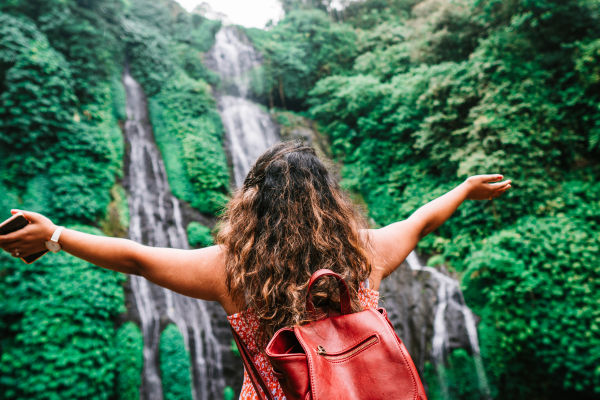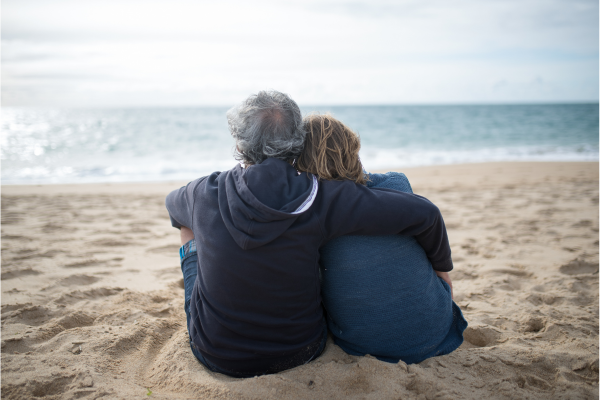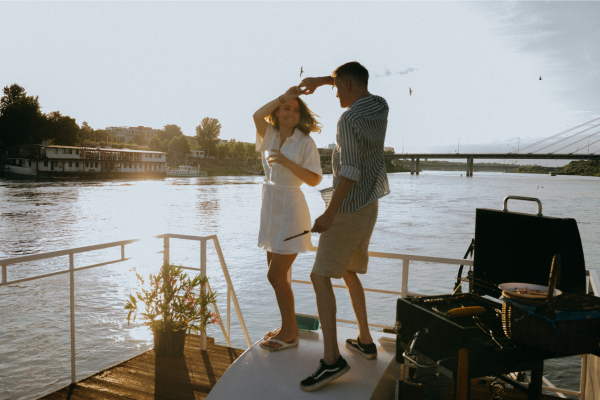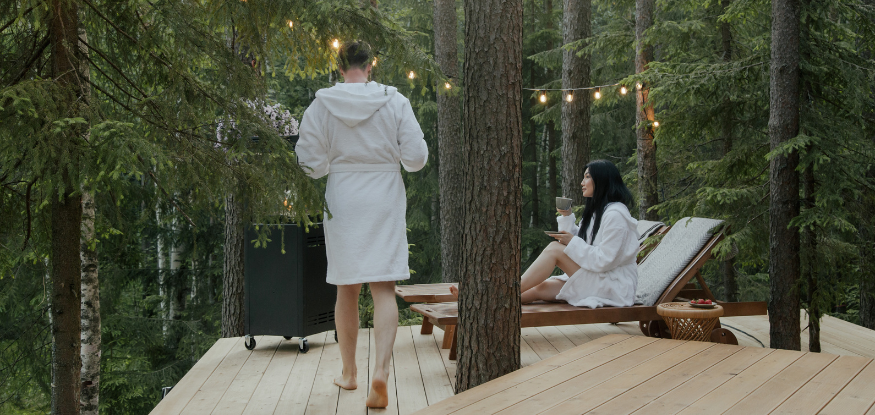Travelling with lovers and friends creates opportunities to build lifelong memories, strengthen bonds and learn more about one another. But sometimes, the lesson is that we aren’t meant to travel together.
A recent travel survey revealed that nearly one-third of Americans have broken up with a partner while on vacation due to their travel habits. From messy hotel rooms to disagreements about spending, a quarter of travellers find their partners’ habits so annoying that it ruins the trip. And a whopping 88% say their behaviour is so bad that they’d prefer to take fewer trips together. Common complaints include:
- Keeps the room a mess
- Brings their own pillow or bedding with them
- Unpacks immediately
- Doesn’t let me eat or drink from the mini bar because it’s too expensive
- Always forgets room key and assumes I have it
Similar sentiments are prevalent in online travel forums and Facebook groups related to travel. Every day, travellers post their relationship-related travel woes. Posters complain of friends who…
- Embarrass them with inappropriate behaviour
- Bring one-night stands back to a shared hotel room
- Refuse to pay their fair share of travel costs when they can afford to do so
- Don’t help with any of the planning, but complain when it doesn’t meet their expectations
- Bail at the last minute or invite themselves without consideration

While travel can bring out the worst in people, it can also create openings for novel explorations, new discoveries and roles that reignite connection and passion. Whether you’re planning a weekend in the woods, an open-ended road trip or a packed itinerary overseas, here are some tips to help you manage relationships on vacation and avoid common pitfalls.
Plan mystery outings. Whether you’re travelling with a partner or a group of friends, consider this option in advance so that you have plenty of time to plan. Each person picks a day or night to plan a surprise experience. You might choose a local activity, a curated experience, a private tour, a special meal or a unique event. You might even choose a connection activity like the Passion Interview that you simply try in a unique locale. Mystery outings add an element of excitement and novelty to your trip, keeping everyone engaged and ensuring that all the planning doesn’t fall on one party. Planning and experiencing these surprises together creates openings for anticipation, mutual appreciation and shared memories. For couples, it can rekindle passion and for friends it can build a sense of camaraderie.
Share a journal or memory box. Consider creating a travel journal or memory box to capture your adventures. Take turns jotting down your daily experiences, reflections, and memorable moments. This shared activity not only creates a tangible keepsake but also encourages deeper conversations and mutual appreciation. Alternatively, you could create a memory box, collecting small souvenirs, tickets, and mementos along the way. At the end of your trip, you can sit together and reminisce as you go through the items, reliving the highlights of your journey. The theory of shared experiences suggests that we derive more enjoyment and satisfaction from experiences shared with others. And narrative psychology emphasizes the importance of storytelling in making sense of our lives and relationships. By co-creating a travel narrative, you and your companions can deepen your connection and enhance the emotional significance of your shared journey.
Embrace individual travel styles. You don’t have to be joined at the hip every step of the way when travelling with others. Embracing your individual travel styles can greatly enhance your overall experience. Travelling with a friend who tends to be late and barely make the check-in cutoff? Let them do their thing and head to the airport on your own so you don’t have to stress about missing your flight. Or perhaps your partner likes to sleep in and play it by ear whereas want to seize the day with morning, afternoon and evening tours; let them sleep and simply venture out on your own. Different people have different preferences and comfort levels when it comes to travelling. Allowing each person to handle their travel according to their own style can reduce stress and potential conflict. Spending time apart also allows you to share unique experiences when you come back together which can enrich your collective travel story while making space for individual growth.

Agree on a budget before you go. Most people fight about money because they aren’t transparent about their plans and expectations. If you’re clear about what you plan to spend, there won’t be any surprises. And if you don’t agree, it’s going to be much easier to find solutions and compromise beforehand rather than in the middle of the trip.
If you’re traveling with friends, you can always opt in or out of different excursions and experiences according to your budget; once again, this will be easier to do in advance, as pulling out at the last minute can throw a wrench in everyone’s plans. So if you’re not comfortable with a specific level of spending, speak up as soon as possible. If you tend to have more money to spend than your travel companions, be considerate of their budgets and feel free to offer an experience as your treat — you can pay in advance to keep things low key and gracious. Splitting costs down the middle isn’t always equitable or practical, so if you want to travel with friends, you may need to get creative (and generous when you can). Of course, if you have a friend who tends to avoid paying their share despite having the money to pay their way, you may simply want to consider if you really want to travel together; some friendships are meant to stay local.
For couples who share finances and can’t agree on travel spending, the conflict is often rooted in an unaddressed deeper divide with regard to financial values. It’s not just about whether they want to splurge on an upgrade or a private tour, but is tied to feelings of financial security and expectations about how pooled money is allocated. Before setting a budget for a vacation, you probably want to consider your overall household budget and if you don’t have one, now is the time to get started.
Show physical affection. Whether it’s a warm embrace, a simple hand-hold, a friendly snuggle, or a passionate kiss, physical affection has the potential to transform your travel experience. Research shows that physical touch can reduce stress, lower blood pressure, and increase the release of endorphins, which enhances feelings of bonding and connection. Consider starting and ending your day with physical affection as well as using it as a remedy to jetlag, travel exhaustion, overexposure and the little tensions that can arise when you’re living and traveling in close quarters.

Plan for Pleasure. Opportunities for pleasure abound on vacation, forget the photo opps and tune into the pleasure of eating, drinking, exploring, indulging and discovering. From food crawls and wine (or tea) tastings to dance parties and spa days, if you book it in advance, you’re more likely to follow through. And if you’re seeking romantic or pleasure, check out local couples’ workshops or hunt for a secluded spot (e.g. beach coves or secluded forests) where you can lay out a blanket and enjoy some private time. Focusing on simple pleasures can help to offset some of the stress associated with travel and the unknown.
And of course, if you’re planning for bedroom pleasure, don’t forget the toys and lube.
Note: if your travel companion tends to get stressed out during the travel portion of your vacation, consider these tips:
- Send them a loving or funny voice note just before your journey begins. The sound of a familiar, loving voice can put our minds and bodies at ease by triggering a physiological response that lowers stress levels (cortisol) and increases feelings of connection and bonding (oxytocin). Rinse and repeat if you notice they’re could use a boost mid-trip.
- Pack their favourite snacks to surprise them during the journey.
- Gift them a travel comfort kit (e.g. earplugs, comfy socks, fancy hand cream and an eye mask).
- Do little favours to make them feel special and cared for (e.g. carry their luggage, secretly pack one of their home comforts, hand-write the itinerary with personal notes about the destination).
If you’re lucky enough to travel over the summer season, embrace a mindset of adventure and openness, using these tips to create lasting memories, deepen connections, and enjoy every moment — whether travelling solo, as a group or with a lover.
